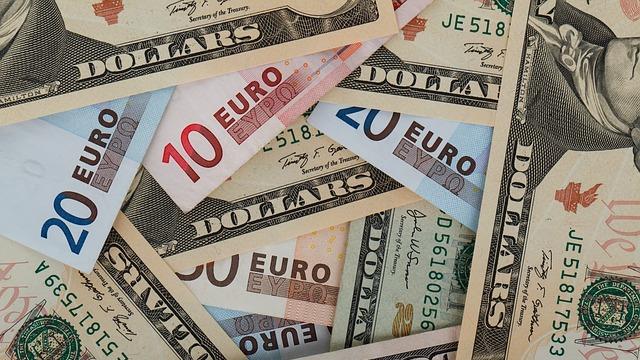Funding relief for Mena states amid Covid-19

Egypt, Morocco and Tunisia have received significant international financing in the past month
Several countries in the Middle East and North Africa (Mena) region have received additional external funding over the past week as the Covid-19 crisis depletes state reserves.
The most notable financing commitments have been made with North African countries.
On 16 June, the World Bank approved a deal worth E£6.4bn ($400m) to support the provision of universal healthcare coverage in Egypt.
Egyptian Minister of International Cooperation Rania al-Mashat said the deal would allow private sector collaboration for the first time in financing a health project in the country.
It will also offer temporary financial protection to the most vulnerable across the country whose income has been affected by the coronavirus outbreak.
French funding
News of Egypt’s World Bank funding came a day after the French Embassy in Egypt reportedly committed $17m to the Arab country through the French Development Agency (AFD).
The AFD’s support, like the World Bank’s, is also focused on Egypt’s healthcare sector, and is expected to help Cairo procure medical equipment and other necessary items to contend with Covid-19.
AFD’s support for Egypt also extends to critical infrastructure projects in the country. On 10 June, the French agency and Cairo signed a financing agreement focused on the country’s electricity sector.
The arrangement comprises a credit facility of $84.1m, marking the first of two equivalent credit facility operations, with the second one to be possibly approved later this year.
The agreement also includes additional grant funding of $1.1m for the deployment of technical assistance programmes.
ADF’s agreement is part of a multi-donor support programme in partnership with the African Development Bank (AfDB) and the Japan International Cooperation Agency (Jica), worth a combined $1.1bn.
Morocco support
On 16 June, the World Bank approved a $48m loan to help Morocco manage the impact of the Covid-19 pandemic as the North African nation starts to emerge from lockdown.
The loan is part of an ongoing project that was approved in 2015 to support primary healthcare services in the country.
Through a project restructuring, a total $13m of undisbursed funds under the programme, and another $35m from the World Bank Group Fast Track Covid-19 Facility, will support the government’s Covid-19 health sector response in terms of prevention, detection, surveillance and case management.
The allocated budget finances the procurement of drugs, equipment and medical supplies.
Moreover, it is expected to help finance technical and medical equipment for laboratories and hospitals accredited to manage Covid-19 cases and scale up testing capacity and case management.
Morocco has also received financial support from the Arab Monetary Fund (AMF) this month.
A $211m extension of a structural adjustment facility in Morocco will support the country’s public finance sector in the face of current circumstances.
In late May, the AMF also provided an automatic loan to Morocco, worth $127m. The loan agreement was aimed at supporting the country’s external financial position and meet its emergency needs.
Tunisia packages
The Tunisian republic has also attracted international funding support from the AMF and the World Bank in the past 30 days.
The Washington-based financier approved $175m for Tunisia on 15 June as part of the Resilience and Recovery Emergency Development Policy Operation.
The programme is part of a coordinated support package to help Tunisia respond to the Covid-19 crisis.
It includes contributions from the World Bank, AFD, Jica, AfDB and Germany’s state-held KFW. The World Bank says the package has been closely coordinated with macro-financial assistance provided by the EU, and the joint operation’s funding will amount to $600-700m in 2020.
Separately, AMF has confirmed $98m to support reforms in Tunisia’s banking and financial sectors, the Abu Dhabi-headquartered fund confirmed on 5 June.
The financing follows AMF’s early-June extension of a loan facility worth $59m to Tunisia to strengthen its financial position amid the pandemic.
Post-pandemic roadmap
Estimates by Tunisian investment minister Selim Abazzi suggest the economy could shrink by up to 7 per cent this year due to Covid-19.
The national unemployment rate could also expand to 21.1 per cent, Abazzi said on 17 June, citing a study carried out by the Tunisian government and the UN.
Morocco has so far displayed somewhat positive health statistics amid Covid-19, with about 88.4 per cent of the country’s infected cases having recovered as of 17 June.
However, the precautionary measures implemented by Prime Minister Saad Eddine el-Othmani’s government were in mid-May estimated to cost about MD1bn ($100m) each day.
Moroccan economy and finance minister Mohamed Benchaaboun said at the time that the health crisis had also hit the country’s key revenue generators, with exports declining 61.5 per cent during the first four months of 2020.
Cairo’s $5.2bn loan from the IMF has been a short-term fiscal challenge to contend with, but a 12-month stand-by arrangement agreed in early-June will provide respite to the government during the year.


